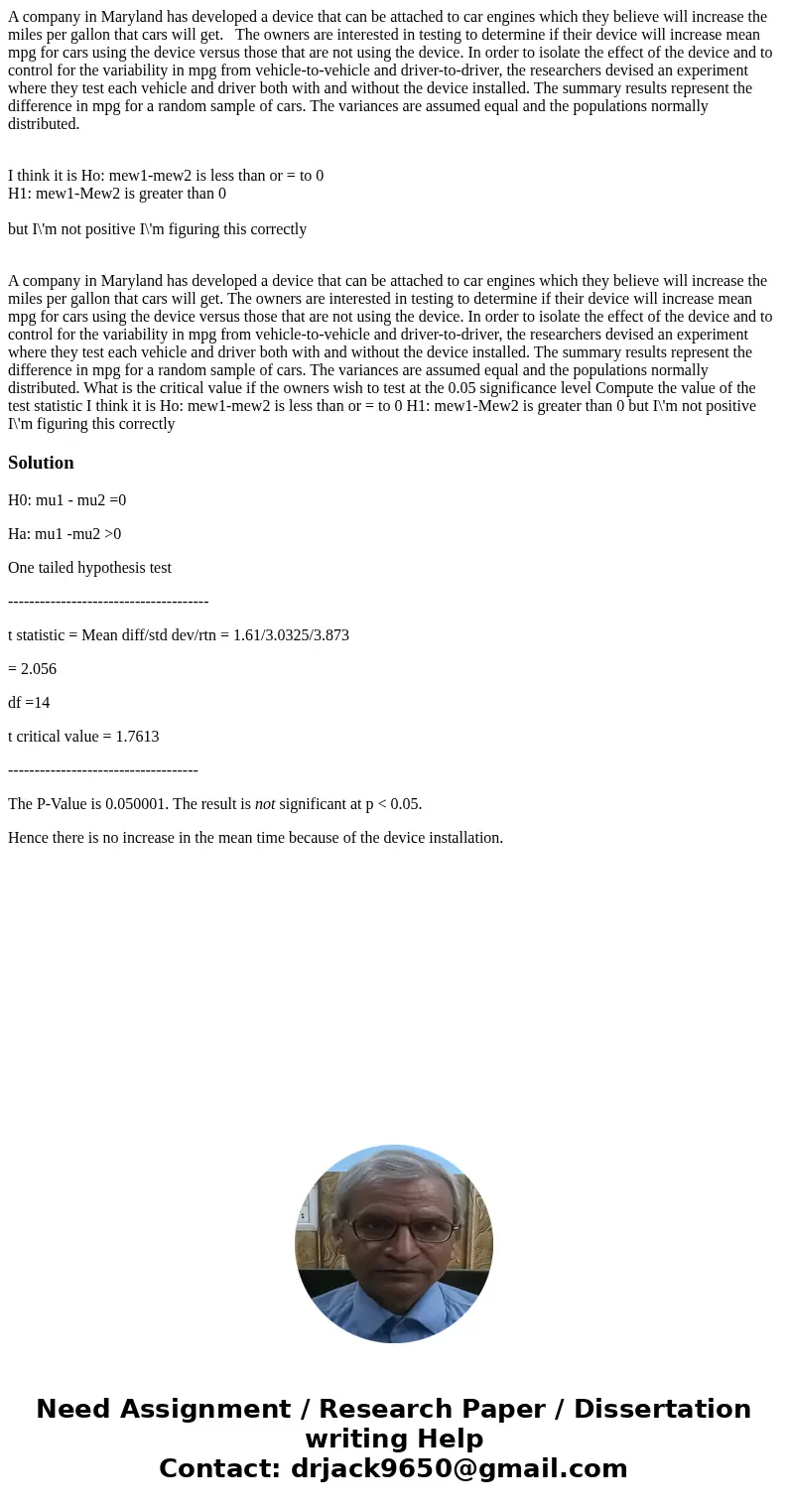A company in Maryland has developed a device that can be att
A company in Maryland has developed a device that can be attached to car engines which they believe will increase the miles per gallon that cars will get. The owners are interested in testing to determine if their device will increase mean mpg for cars using the device versus those that are not using the device. In order to isolate the effect of the device and to control for the variability in mpg from vehicle-to-vehicle and driver-to-driver, the researchers devised an experiment where they test each vehicle and driver both with and without the device installed. The summary results represent the difference in mpg for a random sample of cars. The variances are assumed equal and the populations normally distributed.
I think it is Ho: mew1-mew2 is less than or = to 0
H1: mew1-Mew2 is greater than 0
but I\'m not positive I\'m figuring this correctly
Solution
H0: mu1 - mu2 =0
Ha: mu1 -mu2 >0
One tailed hypothesis test
--------------------------------------
t statistic = Mean diff/std dev/rtn = 1.61/3.0325/3.873
= 2.056
df =14
t critical value = 1.7613
------------------------------------
The P-Value is 0.050001. The result is not significant at p < 0.05.
Hence there is no increase in the mean time because of the device installation.

 Homework Sourse
Homework Sourse